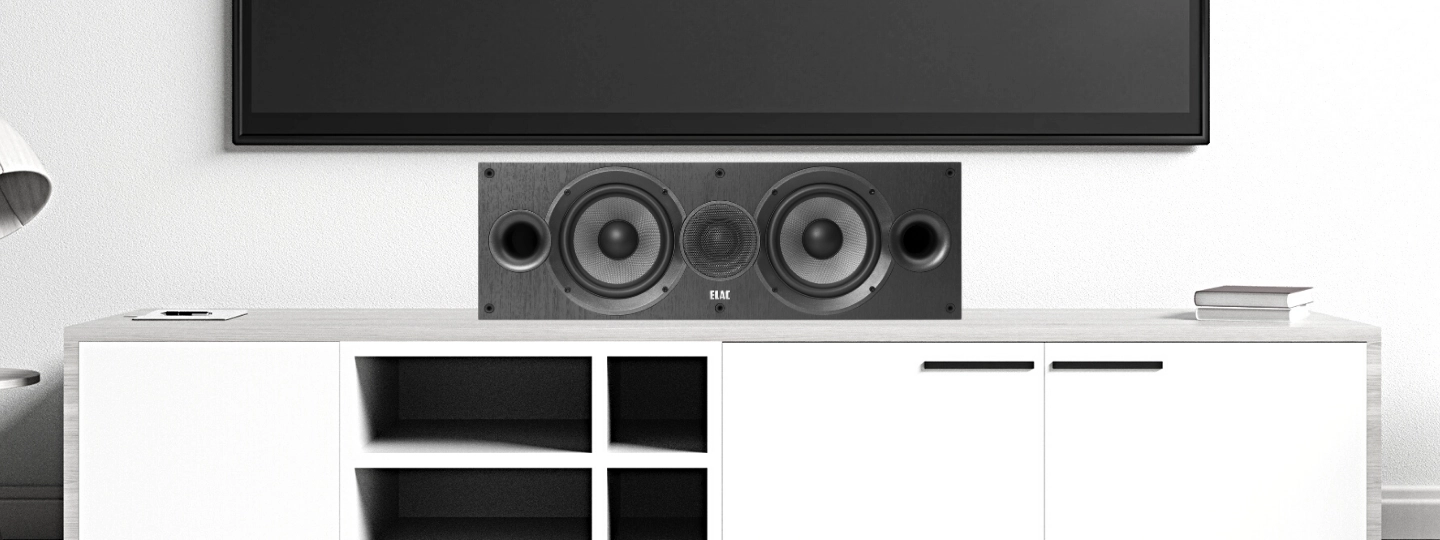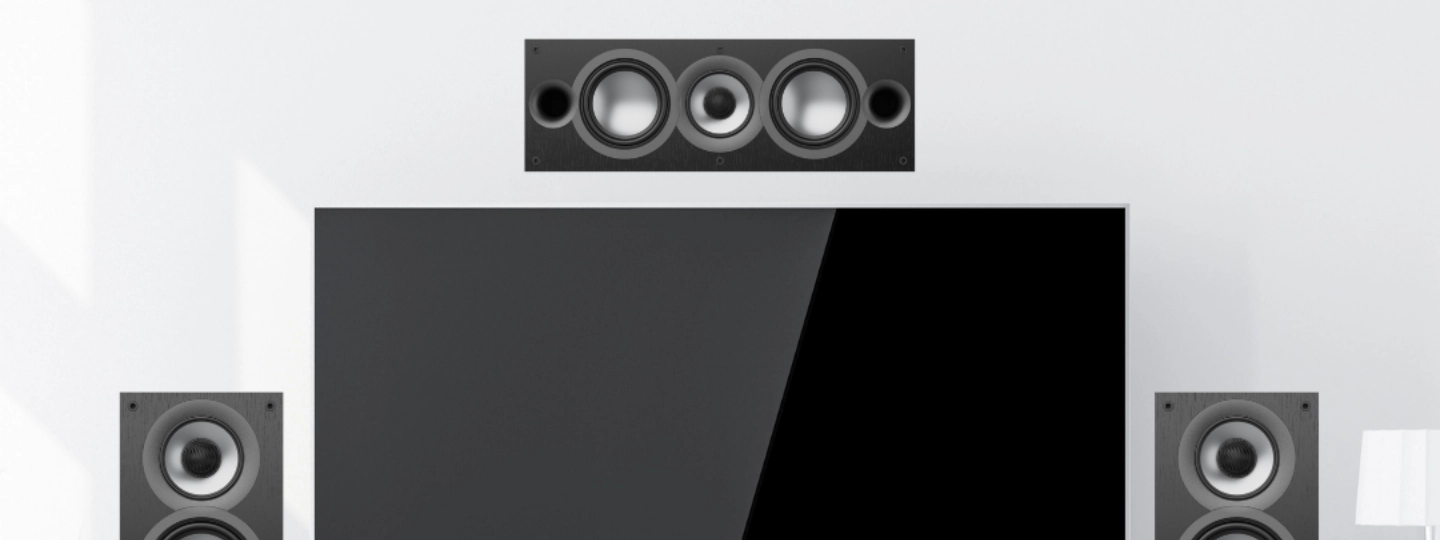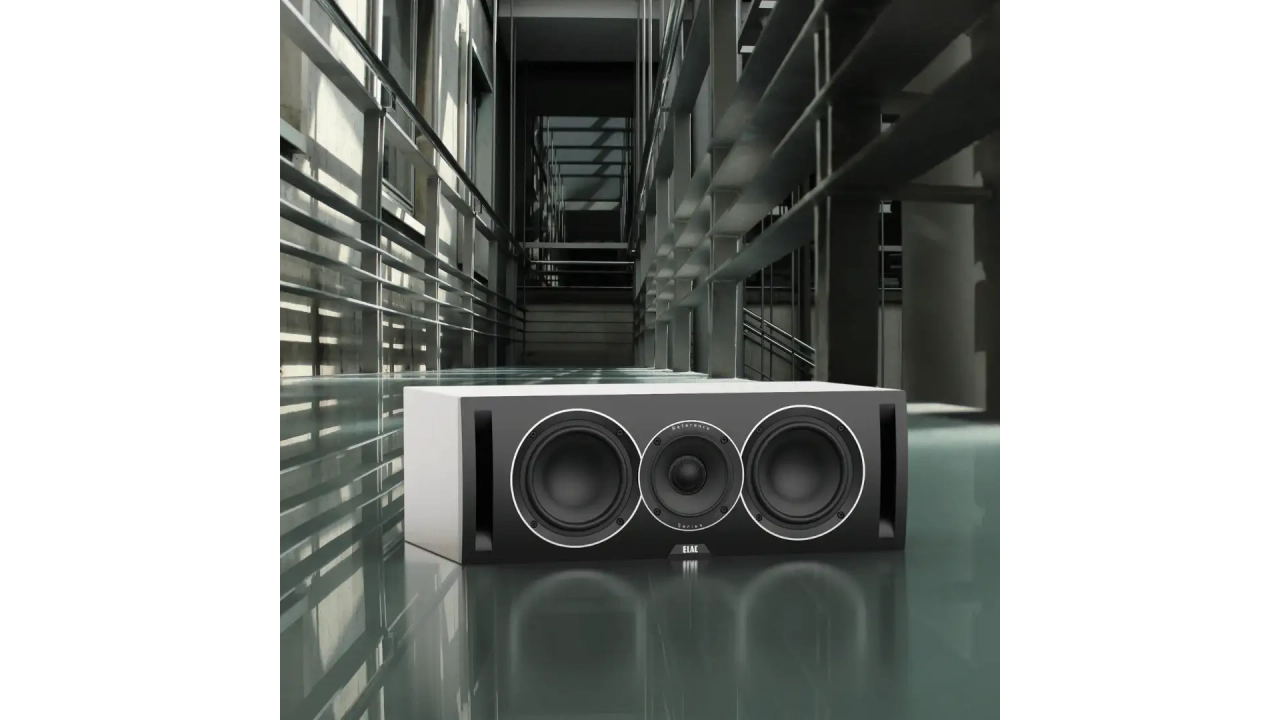Do You Need a Centre Channel Speaker?
Center channel refers to an audio channel common to many surround sound formats. It is the channel that is mostly, or entirely, dedicated to reproducing dialogue. The speakers connected to the center channel are placed in the center of and behind the screen, to give the effect that the sound from the center channel comes from the screen. In many home surround sound units, the center channel is positioned above or below the video screen.
Stereo audio was initially designed to separate recorded sound into two channels. Although some sounds come specifically from the left or right channel speakers, principle vocals or dialogue are mixed into both speakers. This gives the listener the illusion that the vocals come from a phantom center spot between left and right channel speakers. As a result, in a traditional stereo setup, since the vocals are coming from both the left and right channels, you can’t control the position or level (volume) of the center channel vocals independently from the left and right channels. A center channel speaker allows you to raise the volume level of dialogue. It can isolate and control dialogue levels independent of other ambient noises.

Check out our Debut 2.0 Series
Do I need a center channel speaker?
The center channel speaker is arguably the most important and underrated in a home theatre surround sound system. Nearly 70% of all audio content plays through the center channel at any given moment. It also handles the majority of dialogue and vocals in music and movies. It ties all the action together across the front stage to create continuity and a sense of realism. A better question is, what are you using your audio system for? If you are using your system to watch movies as a part of a home theatre system, you will be glad you have it. Modern movies, and those that have been digitally re-mastered, have been designed to play through surround sound systems. There is a minimum of 5.1 channels – front left and right, surround left and right, the subwoofer, and the center channel.
If you are creating a setup for music alone, then a center channel speaker probably isn’t necessary. Music is designed for the most part to run in stereo mode. Traditionally, main audio tracks such as vocals are mixed into both speakers and play in either the right or left speaker.
Read this great article from Audio Advice for a more in-depth look on optimizing your home audio center channel speakers. Click here.
What should I look for when buying a center channel speaker?
It is wise to get a center channel speaker that complements your other speakers. All of our speaker series (Debut 2.0, Debut Reference, Uni-Fi, Uni-fi Slim, Carina, and Vela) are paired with a center channel speaker. When searching for a center channel speaker, always look for a “three-way design” with a vertically-aligned tweeter and midrange. This allows it to perform closer to a full range speaker and radiate a more disperse sound field while enabling the acoustic image to track across the front stage accurately.

The perfect complement to a Uni-Fi surround-sound system, the UC5 paints a seamless center stage for music and film with a 3-way, bass-reflex design that uses the same outstanding concentric driver that makes every model in the Uni-Fi series such a stand-out performer.
Conclusion
If you are upgrading from two-channel stereo to a full home theatre surround sound setup, here are the main things to consider:
- Audio anchor point: A center channel speaker provides a specific anchor location for dialogue and vocals.
- Independently adjust volume: The volume level of a center channel speaker can be adjusted separately from the other speakers in a system, providing more flexibility in balancing the system’s total sound.
- Get a speaker that complements your other speakers: When shopping for a center channel speaker, consider one with similar sonic characteristics to that of your left and right front main speakers.
- Consider a horizontal speaker: To facilitate optimal center channel placement, find one with a horizontal design so that it can be placed above or below a TV or projection screen and ideally positioned at an equal distance between the front left and right channel speakers.

